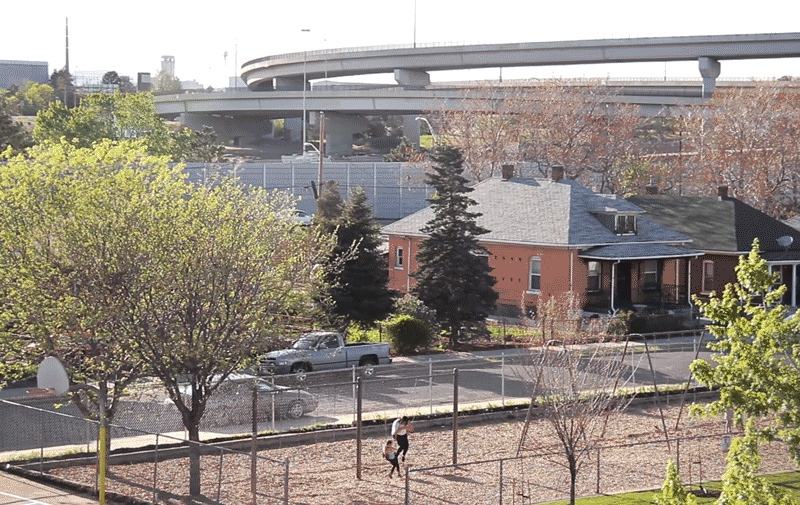Nights will stay quieter in north Denver for at least a month longer. The contractor in charge of the I-70 reconstruction project has delayed its request to begin nighttime construction on the highway.
The contractor, Kiewit Meridiam Partners, has asked for a variance that would allow construction to happen at any hour through the end of 2023. Originally, that request was supposed to go before the city's Board of Public Health and Environment this Thursday.
On Monday, though, a spokesperson for the project confirmed that the request has been delayed. Kiewit has asked that the meeting be rescheduled for August.
"Waiting ’til August really helps us make sure that we have answered the questions and can answer all the questions that people have, and can let people know more about the mitigation requirements associated with this variance," said Hunter Sydnor in a phone interview.
The proposal drew fast backlash from neighborhood residents and groups. The nonprofit Inter-Neighborhood Cooperation said it was "astounded" by a perceived lack of warning on the proposal. A city email about the nighttime noise request went out on July 2, and the meeting was scheduled for July 12.
Kiewit originally requested the variance in April -- "more than ample time for outreach to affected communities," INC tweeted. (See the original request, and city staff's recommendations.)
Ann Cecchine-Williams, deputy director of the Department of Public Health and Environment, said that the city had to work through a long process and come up with its own recommendation before publicizing the request
"Being that this was a big request it takes more time to run down the details and make sure that everything we need is included. We also have to issue a response to the variance with our department’s position. Another large undertaking to ensure that our recommendation includes everything we need and covers every concern we can think of," she wrote in an email to Denverite.
Denver city staff say that Kiewit should be allowed to work at night, as long as they agree to various sound-reduction techniques. The company also would have to keep below certain sound levels, schedule breaks in construction and, in some cases, pay for residents to sleep in hotels.
Neighborhood advocates said that the prospect of losing sleep for years was just another burden. North Denver has been plagued for decades by the highway's noise and fumes and by the city's industrial pollution.
A representative for Colorado Department of Transportation said that Kiewit's request closely matched its nighttime work on Interstate 25 in Washington Park in the 2000s.
Council President Albus Brooks, who represents parts of north Denver, said that nighttime work is necessary, but he wanted to see changes to allow for greater community oversight of the work. He wants to convene a formal community group to track Kiewit's efforts.
Candi CdeBaca, who is challenging Brooks in the upcoming election, asked which community members would be allowed to serve on that group, saying that previous committees had been "stacked." And she said that the request was "unreasonable."
"I think it's a clear indicator that they expected us to stop paying attention once they began construction," she wrote in a text message to Denverite. "We warned them that this project would not be completed without independent community oversight at every step of the way."
The environmental board's next meeting is Aug. 9 at the community room of 1241 W. Bayaud Ave. The agenda hasn't been set yet, but Kiewit hopes to get a decision at that meeting.
"In the perfect world, we would have liked to have gotten it in July. It’s not going to impact our schedule that much if we have to wait until August," Sydnor said. But Kiewit has claimed that it needs to work at night to hit its deadline, and it says nighttime work is safer and more efficient because traffic is lighter.
For more information on the I-70 construction process, check out our earlier coverage.












